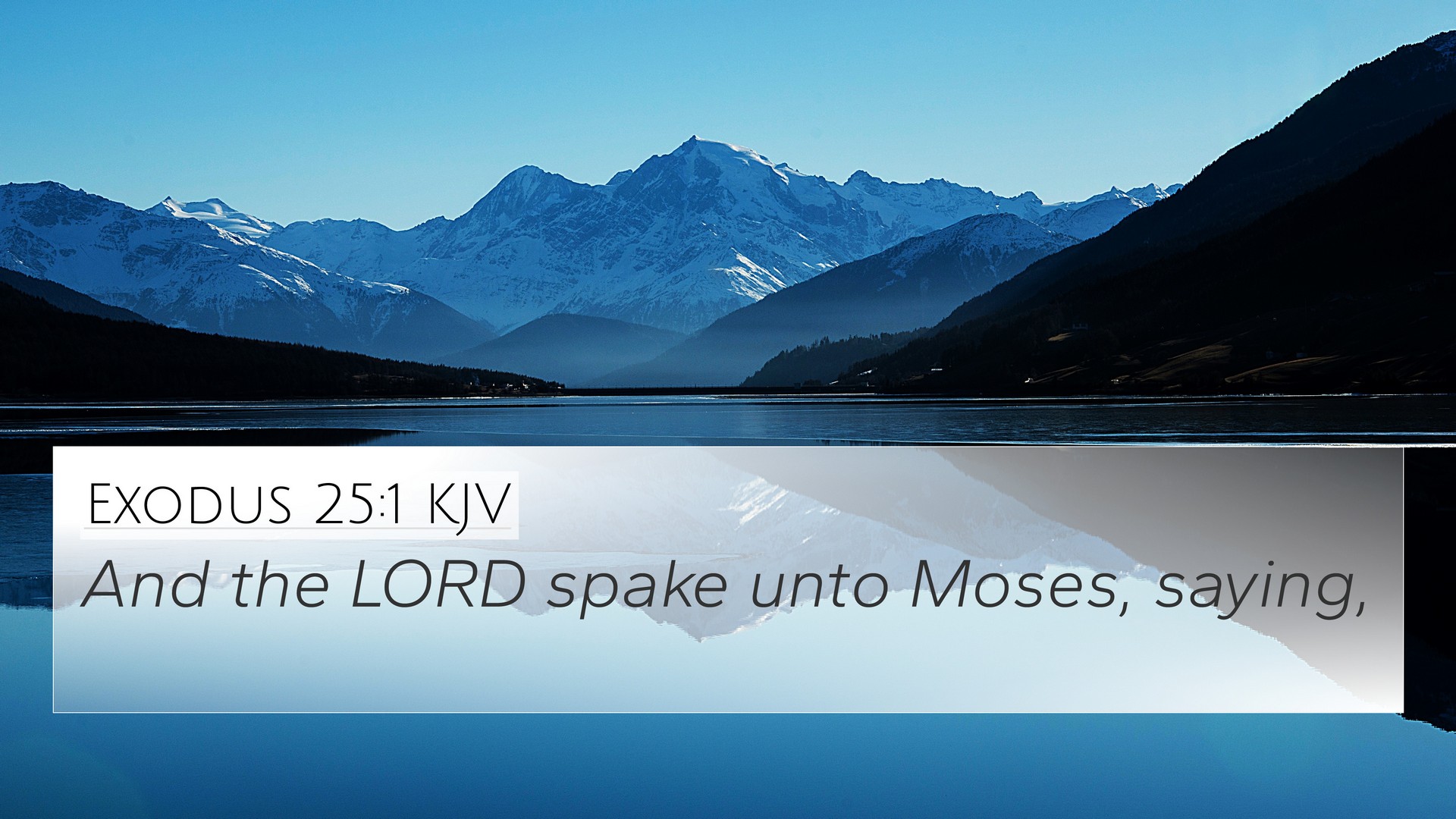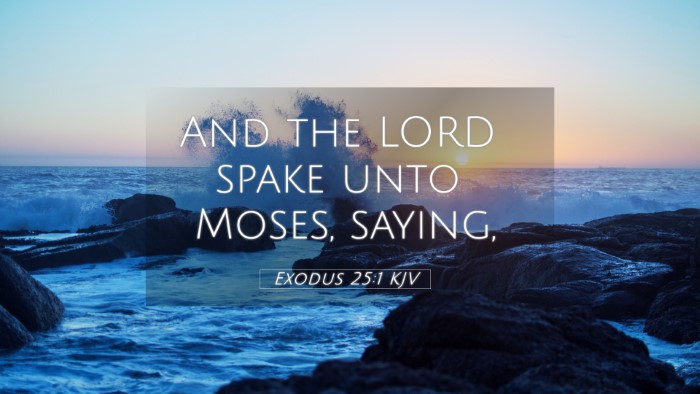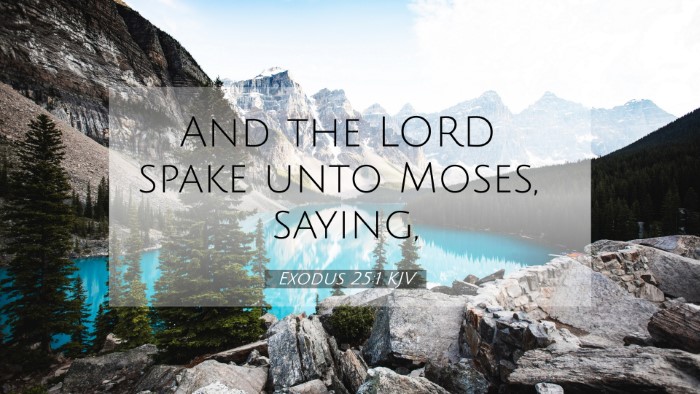Understanding Exodus 25:1
The verse Exodus 25:1 states, "And the Lord spake unto Moses, saying." This brief yet profound statement initiates a significant dialogue between God and Moses, setting the framework for God's instructions regarding the sanctuary and the Ark of the Covenant.
Summary of Insights
This verse marks the beginning of detailed instructions regarding the construction of the Tabernacle, which serves as a focal point for the Israelites' worship. Various commentaries provide deeper insights into its meaning:
- Matthew Henry: Henry emphasizes that God's speaking to Moses demonstrates the personal and direct relationship God has with His chosen leaders. He also points out the importance of obedience to God's words as they come with divine authority.
- Albert Barnes: Barnes highlights the significance of God taking the initiative to communicate with Moses, reflecting His sovereign will. He underscores that this communication sets the stage for the laws and regulations that will define Israel's worship practices.
- Adam Clarke: Clarke indicates that the call to Moses illustrates the preparatory stage for the establishment of worship in a structured manner. He notes how God instructs Moses clearly and directly, showing that divine guidance is essential for fulfilling His commands.
Thematic Connections
Exodus 25:1 can be understood as part of a broader narrative in Scripture that illustrates God's desire for a relationship with His people and the importance of worship. Several themes emerge:
- Divine Communication: Hence, the beginning of God's directives emphasizes the need for listening and responding to God's word.
- Worship and Sanctuary: The context of Exodus emphasizes the importance of worship in community, which continues into the New Testament with the idea of the Church as the body of believers.
- The Presence of God: The instructions that follow this verse culminate in God manifesting His presence among His people, a theme echoed throughout both the Old and New Testaments.
- Leadership and Authority: God’s choice of Moses as the mediator of His commands reflects both the burden and privilege of leadership in God's plan.
Cross-References and Connections
Exodus 25:1 links to numerous other Bible verses, establishing a network of scriptural cross-references that deepen understanding:
- Exodus 40:1-2: God's command to set up the Tabernacle on the first day of the first month links directly to the instructions given here.
- Leviticus 1:1: "And the Lord called unto Moses," demonstrates the ongoing narrative of divine instruction.
- Numbers 7:89: References the dialogue between God and Moses regarding the dedication of the Tabernacle.
- Hebrews 8:5: In the New Testament, the Tabernacle is described as a copy and shadow of heavenly things.
- Matthew 17:5: God speaks again during the transfiguration, reinforcing the theme of listening to Him.
- Acts 7:38: Stephen references Moses as a leader who received living oracles to give to Israel, illustrating continuity.
- John 1:14: "The Word became flesh" connects God’s presence to Jesus, creating a rich tapestry of divine interaction with humanity.
- Hebrews 4:12: "The word of God is living and active," establishing the power of God's words throughout Scripture.
- Revelation 21:3: The theme of God's dwelling with His people finds its ultimate fulfillment in the New Jerusalem, echoing the initial desire reflected in Exodus 25:1.
Biblical Themes and Their Implications
The instructions that follow Exodus 25:1 reflect an overarching theme of God's desire for His people to have a means of access to Him, showcasing various implications:
- Access to God: The design of the Tabernacle symbolizes God's desire to dwell among His people, indicating that He is not distant but desires intimate relationship and fellowship.
- Proper Worship: The subsequent instructions emphasize that worship must be approached with reverence and an understanding of God's holiness.
- Mediation: The role of Moses as a mediator presages the ultimate mediation of Christ, connecting Old Testament practices to New Testament fulfillment.
Conclusion
Exodus 25:1 serves as a crucial element in understanding the relationship between God and His people, highlighting themes of divine communication, worship, and leadership. The insightful interpretations from public domain commentaries enhance our comprehension and encourage deeper reflection on the nature of God's desire to be known and worshiped.
For those engaging in Bible cross-reference study, Exodus 25:1 opens up avenues to explore connections between Bible verses, particularly within the Pentateuch and extending into the New Testament. Understanding cross-referenced themes in Scripture not only enriches personal study but aids in the preparation of sermons and teachings that align with God's overarching narrative.


